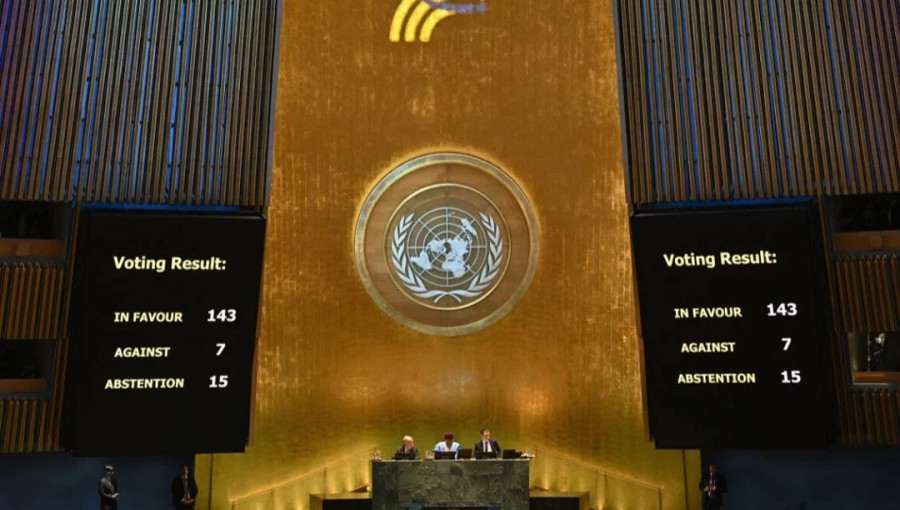New York Sep 23 (V7N) – The "Pact for the Future" is the United Nations' strategic blueprint to address humanity's upcoming challenges. Adopted by all 193 UN member states, this pact outlines 56 actions, touching on key areas such as global peacekeeping and the emerging risks of artificial intelligence.
Peace and International Law The pact underscores growing threats to global peace, including nuclear warfare. It reaffirms the UN’s commitment to its foundational principles—upholding international law, protecting civilians, advocating diplomacy, and promoting human rights. A key goal is the elimination of nuclear weapons. Additionally, the pact mandates a review of UN peacekeeping operations to enhance their responsiveness and agility.
Environment With climate change recognized as one of humanity’s most pressing threats, the pact calls for accelerated climate action, echoing goals set for COP28. These include transitioning from fossil fuels, tripling renewable energy use by 2030, achieving carbon neutrality by 2050, and capping global temperature rise at 1.5°C. Negotiations surrounding fossil fuels were contentious, but the pact ultimately retained references to them despite resistance from fossil-fuel-producing nations.
Finance and Development The pact emphasizes the need to speed up efforts to meet the 2030 Sustainable Development Goals (SDGs), particularly in areas like poverty eradication, hunger relief, gender equality, and education. However, many targets remain unfulfilled. The pact advocates for reforming international financial systems, giving developing nations better access to climate adaptation funding. This would require changes at institutions like the World Bank and the International Monetary Fund (IMF).
Security Council The pact addresses the Security Council's current inefficiency, exacerbated by vetoes from major powers like Russia and the US. It calls for reforms to make the council more representative, particularly seeking to address the exclusion of African nations from permanent seats. UN Secretary-General Antonio Guterres praised the document’s strong language on Security Council reform, though disagreements persist over expanding permanent membership and reforming the veto system.
Artificial Intelligence Alongside the main pact, the member states adopted a "Global Digital Compact," aimed at narrowing the digital divide and ensuring safe, inclusive technological development. As artificial intelligence continues to evolve rapidly, the compact calls for the creation of an Independent International Scientific Panel to foster dialogue between states and tech innovators.
Meanwhile, Interim Government Chief Adviser Dr. Muhammad Yunus has set off for New York, USA, to participate in the 79th session of the United Nations General Assembly. He departed from Hazrat Shahjalal International Airport on Monday, September 23, in the morning. A total of 57 people, including security personnel and media representatives, are accompanying him on the trip. After completing his official engagements in New York, Dr. Yunus is expected to return to Dhaka on the night of Friday, September 27.
END/SMA/MSS/































Comment: